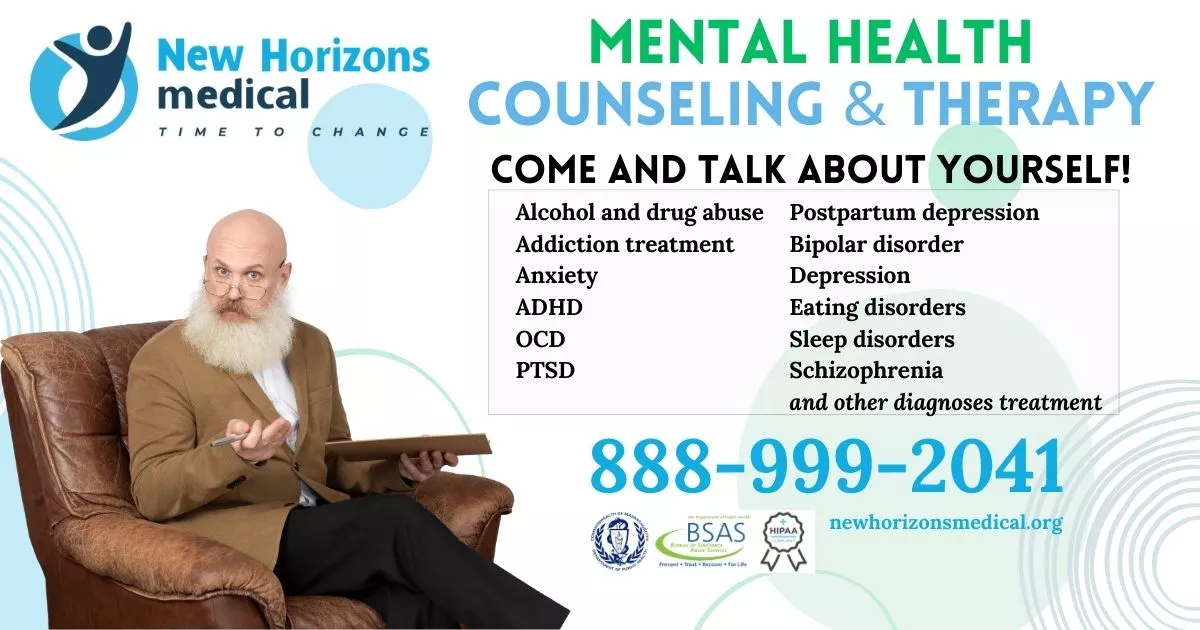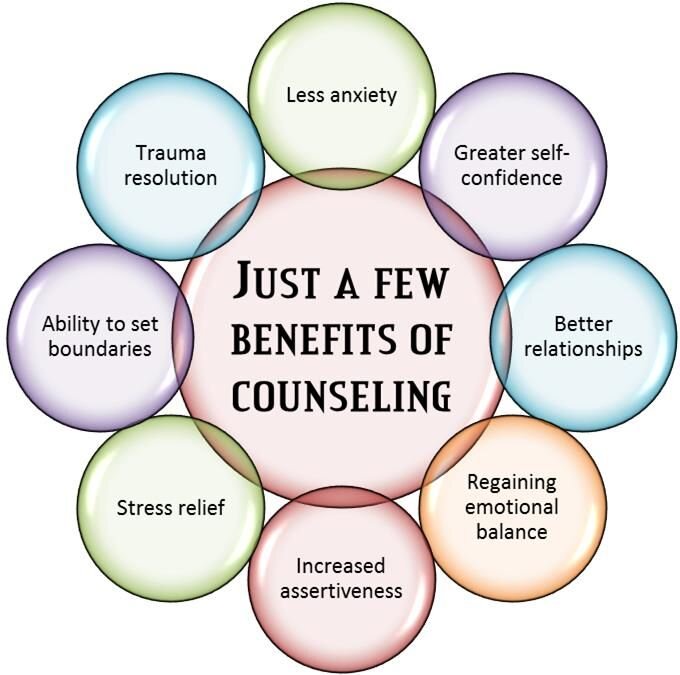The Relevance of Mental Health: a Deep Dive Into Counseling, Treatment, and Their Advantages
Psychological health and wellness greatly forms individual health, influencing habits, ideas, and emotions. Counseling and therapy work as essential avenues for recovery and personal growth. They supply structured support, assisting people navigate life's difficulties. Yet, several continue to be uninformed of the particular kinds of treatment available and their unique benefits. Understanding these facets is necessary for anyone considering specialist mental health assistance. What follows might brighten paths to resilience and fulfillment that lots of overlook.
Comprehending Mental Health And Wellness and Its Effect
Although psychological wellness is usually neglected, it plays a necessary function in general wellness and day-to-day performance. It incorporates emotional, emotional, and social variables that affect exactly how individuals think, really feel, and act. A person's mental health straight influences their capacity to deal with stress and anxiety, associate to others, and choose. Poor mental wellness can result in numerous problems, including stress and anxiety, depression, and trouble in keeping connections, all of which can hinder personal and specialist growth.Furthermore, psychological health and wellness has significant implications for physical health. Persistent stress and untreated mental conditions can add to different physical ailments, such as cardiovascular disease and damaged immune responses. Alternatively, favorable mental health promotes resilience, allowing individuals to handle life's challenges properly. Comprehending psychological wellness's relevance is crucial for promoting supportive environments that promote emotional health, thus enhancing the lifestyle for people and communities alike
The Different Kinds of Counseling and Treatment
In the domain name of mental health, various therapy and therapy kinds accommodate varied requirements. Individual therapy strategies concentrate on individual problems via individually sessions, while group treatment characteristics foster shared experiences and assistance amongst participants. Understanding these methods is important for choosing the appropriate intervention for various difficulties.
Individual Therapy Approaches
Countless private counseling strategies exist, each created to attend to specific mental wellness issues and provide to differing customer demands. Cognitive Behavior Treatment (CBT) concentrates on determining and transforming negative idea patterns, while Psychodynamic Treatment explores previous experiences and subconscious procedures. Humanistic Treatment emphasizes individual development and self-actualization, fostering a supportive setting. Social Treatment (IPT) targets connection issues and interaction patterns to boost psychological health. Furthermore, Approval and Commitment Treatment (ACT) encourages clients to approve their ideas and feelings while committing to personal values. Each approach provides one-of-a-kind strategies and ideologies, permitting experts to customize their approaches to the individual, consequently improving the therapeutic experience and advertising mental wellness recovery.
Group Therapy Dynamics
Group treatment dynamics include different restorative approaches that utilize the power of interpersonal connections and shared experiences. This form of therapy often consists of varied teams, fostering a risk-free environment for participants to reveal feelings and ideas. Key kinds of group treatment include assistance groups, which supply psychological support; process-oriented groups, concentrating on social interactions; and psychoeducational groups, intended at imparting understanding regarding psychological health and wellness concerns. The characteristics within these groups can boost self-awareness, as members typically review their actions in relation to others. In addition, team treatment fosters a feeling of belonging, minimizing sensations of isolation. Via shared narratives and collective problem-solving, participants can develop coping approaches and obtain understandings, eventually adding to specific development and recovery.
The Function of Counseling in Mental Health
Counseling plays an important role in psychological health by offering different approaches tailored to individual needs. These techniques provide specialist advice that can result in considerable renovations in emotional health. Understanding the different kinds of counseling can assist individuals make educated decisions concerning their psychological healthcare.

Kinds Of Counseling Methods
While numerous therapy approaches exist, each deals one-of-a-kind methods and understandings right into psychological health and wellness treatment - Couples Therapy. Amongst one of the most famous are cognitive-behavioral therapy (CBT), which concentrates on changing unfavorable thought patterns; psychodynamic treatment, which discovers subconscious procedures and youth experiences; and humanistic approaches, highlighting personal growth and self-actualization. In addition, solution-focused quick therapy focuses on locating options in the here and now instead than delving right into issues. Group therapy promotes community and shared experiences, while family treatment addresses relational characteristics within domestic structures. Each approach caters to various requirements, lining up with individual preferences, concerns, and healing goals. Comprehending these methods assists clients make informed options regarding their mental health trip and promotes effective treatment customized to their unique scenarios
Advantages of Expert Advice
Various people benefit from professional assistance in handling their mental wellness challenges. Counseling provides a risk-free space for customers to discover their thoughts and sensations without judgment. This healing atmosphere cultivates more information self-awareness, enabling individuals to identify patterns in their behavior and develop much healthier coping techniques. Specialist advice also provides access to evidence-based techniques that can ease signs of stress and anxiety, clinical depression, and various other mental health concerns. In addition, therapists can help in establishing realistic goals and supply support in achieving them, boosting total well-being. The collective partnership in between therapist and customer is essential, as it promotes liability and urges personal growth. Inevitably, specialist assistance plays a vital function in steering psychological health trips, bring about improved psychological resilience and life satisfaction.
Benefits of Therapy: Healing and Growth

Exactly how to Select the Right Therapist or Therapist
Just how can one browse the frequently overwhelming procedure of selecting the ideal therapist or counselor? Recognizing personal demands is vital; individuals must consider their specific problems, whether anxiety, stress and anxiety, or connection obstacles. It is helpful to research study various therapeutic strategies, such as cognitive-behavioral therapy or psychodynamic therapy, to locate a suitable match.Next, prospective clients must look for references from trusted resources or utilize on-line directories. It is essential to examine therapists' qualifications, including their education, licensing, and locations of field visit this site of expertise. Arranging initial assessments can help evaluate compatibility, enabling individuals to assess interaction designs and personal comfort.Finally, logistical factors, such as area, availability, and costs, need to likewise be thought about. By thoughtfully considering these components, one can make a notified decision, inevitably fostering a restorative connection that supports mental health and wellness and individual growth.
Getting Over Stigma: Accepting Mental Health Support
While societal mindsets towards psychological wellness have advanced, preconception still provides a significant obstacle for many seeking assistance. This preconception frequently shows up as misunderstandings surrounding mental ailment, leading individuals to really feel shame or anxiety concerning their battles. Many individuals hesitate to seek therapy or therapy due to fret about being judged or labeled. Conquering this stigma is essential for cultivating a helpful setting where people can honestly review their mental wellness needs.Communities and companies play an important function in this makeover by advertising understanding and education about mental health problems. Efforts that highlight individual tales can humanize these experiences, encouraging others to look for aid without anxiety. As acceptance expands, people might really feel more encouraged to welcome mental health assistance, acknowledging it as a vital facet of overall well-being. By taking apart stigma, society can cultivate a culture of understanding, empathy, and proactive mental healthcare.
Approaches for Preserving Mental Health Outside of Treatment
Therapy gives valuable assistance, preserving mental well-being outside of sessions is additional resources equally important. People can execute numerous methods to maintain their mental wellness. Regular exercise plays a crucial duty, as workout advertises the launch of endorphins, which boost mood. In addition, a well balanced diet plan rich in nutrients can considerably impact psychological security and power levels.Practicing mindfulness and meditation helps individuals take care of stress and create higher self-awareness. Establishing a constant sleep routine is likewise basic, as high quality rest is essential for cognitive feature and psychological regulation.Engaging in social activities cultivates link and reduces feelings of isolation. Pursuing leisure activities or rate of interests can provide an imaginative electrical outlet and increase self-confidence. Practicing and setting practical goals self-compassion enables individuals to grow durability. By incorporating these techniques into day-to-day life, individuals can efficiently support their mental well-being past therapy sessions.
Frequently Asked Questions

Exactly How Can I Tell if I Required Treatment?

Determining the need for therapy usually involves identifying relentless sensations of sadness, anxiety, or frustrating tension. If day-to-day working becomes challenging or coping mechanisms fall short, looking for specialist assistance may be a valuable progression.
What Should I Anticipate in My Very First Therapy Session?
In the very first treatment session, people can expect an intro, conversation of their reasons for seeking aid, and an introduction of the specialist's method, creating a foundation for future conversations and establishing convenience in the restorative area.
Are Online Therapy Procedure as Effective as In-Person Ones?
Research study shows that online therapy sessions can be as effective as in-person ones. Aspects such as the therapist's credentials, customer interaction, and the healing partnership considerably influence outcomes, no matter the tool made use of.
Can Therapy Aid With Partnership Issues?
Treatment can help people in attending to connection issues by offering devices for communication, comprehending feelings, and dealing with disputes. Marriage Counselling. It promotes healthier dynamics and encourages individual growth, inevitably fostering more powerful, much more meeting connections between companions
The Length Of Time Does Treatment Generally Last?
Therapy duration varies substantially based upon private requirements and objectives. Typically, sessions may last from a couple of weeks to several months, with some individuals involving in continuous treatment to attend to lasting worries and individual development. Cognitive Behavior Therapy (CBT) focuses on identifying and transforming unfavorable idea patterns, while Psychodynamic Therapy discovers subconscious processes and previous experiences. Key types of group treatment include assistance groups, which give emotional assistance; process-oriented groups, focusing on interpersonal interactions; and psychoeducational groups, aimed at giving understanding regarding psychological health and wellness problems. Amongst the most famous are cognitive-behavioral treatment (CBT), which focuses on modifying negative idea patterns; psychodynamic treatment, which explores unconscious procedures and childhood years experiences; and humanistic approaches, stressing personal development and self-actualization. Team therapy fosters area and shared experiences, while household treatment addresses relational dynamics within familial structures. It is advantageous to study numerous therapeutic strategies, such as cognitive-behavioral therapy or psychodynamic therapy, to find an appropriate match.Next, prospective clients should seek recommendations from relied on sources or make use of on-line directory sites.
Comments on “Mental Health Resources for the Workplace: How Employers Can Support Staff”